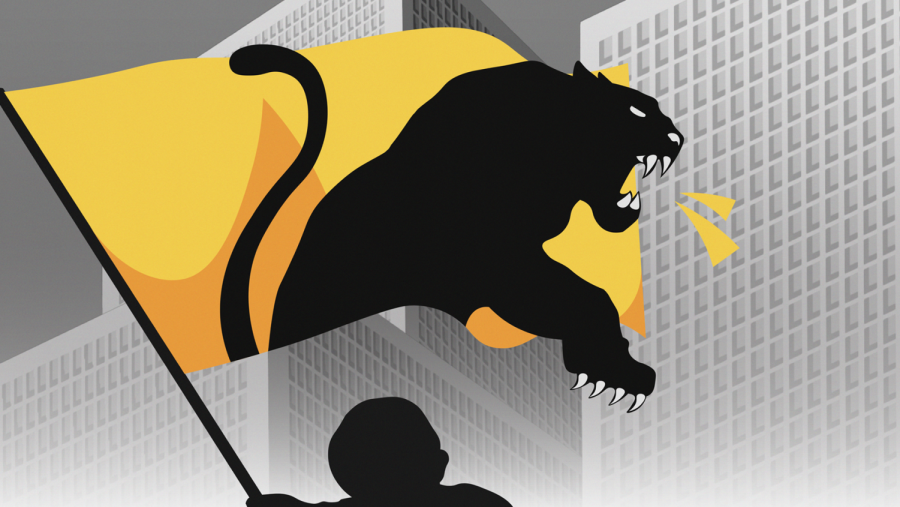William F. Buckley is credited as the sole reason of the rise in modern conservatism in “Buckley: William F. Buckley and the Rise of Conservatism,” a new biography by Carl T. Bogus, professor of Law at Roger Williams University.
The biography supports Buckley’s leadership in modern conservatism above other conservative proponents, such as Senator Barry Goldwater, as well as its ideological sub-categories that helped define libertarianism, social conservatism and neo-conservatism.
Modern conservatism owes much of its tenants to the late Buckley, whose anti-elitism, religious dictation of good and evil and anti-communism carved out a new place for right-wing populism.
Bogus, a liberal who spent the last four years delving into conservative literature largely focused on the likes of Buckley, has written numerous articles and 56 books, his most famous being “God and Man at Yale,” which is typically credited as one of the early works that sparked the modern conservative movement.
Bogus paints a large stroke across the conservative movement through the ‘50s and ‘60s, giving much space to libertarians and conservatives like Goldwater, Ayn Rand, Joseph McCarthy and various early contributors to Buckley’s magazine the National Review. His book highlights an emphasis on its subtitle concerning the rise of conservatism but delves less into Buckley than the title may suggest.
Instead, Bogus tries to link other conservative’s relations to Buckley and highlight Buckley’s utilization of such relationships to do his own bidding, whether it is through recruitment onto his magazine, befriending politicians of influence or his excommunication of perceived threats to Buckley’s vision of conservatism.
One such instance was when Rand’s “Atlas Shrugged” received a scathing review from the National Review with the purpose of driving Rand from the conservative movement because she was an atheist and Buckley a staunch Catholic.
Buckley’s own religious sentiments affected his world view, in which he believed that the world was divided between good and evil and this religious battle was his political context in his understanding of capitalism and communism.
He believed capitalism, a force for “good,” was engaged in a battle with communism, a force of “evil.” While Ronald Reagan believed that communism would outlive itself, Buckley believed in active global interaction to “roll back” communism.
Collectivism to Buckley was something to struggle against for the survival of individualism, which according to Buckley was the good vs. evil struggle reproduced on a different level. This religious political mentality is today associated with the social conservative.
In fact, it is this very religious fervor associated with the right that gave birth to political pundits today, from the fiery Rush Limbaugh to the hardened Bill O’Reilly. The seeds implemented from Buckley’s early infusion of religion and politics was the precursor to the flowering of the Tea Party movement.
Bogus outlines Buckley’s protection of the conservative movement. If Buckley foresaw an entity that skewed the movement to a radicalization that he did not agree with, he made sure to extinguish it from conservative ranks.
He purged the John Birch Society from the ranks of the new conservative movement, who were radical anti-communists who suspected that even Eisenhower himself was in bed with the Soviet Union.
Buckley, in essence, was a conservative celebrity. He was a television host, intellectual and leader. He was a brash debater who attacked his opponents with ad hominem and political fervor and saw atheism and collectivism as threats to the western world.
Buckley was an ideologue that worked to separate the conservative movement from the traditional and pragmatic conservative and thicken the lines dividing the left and the right with a bulwark of criticism to inflict upon the democrats.
Bogus’ book reveals an apparent admiration for the late Buckley, although he retains his criticism of Buckley’s own less-than-favorable views of blacks.
The National Review, for example, ran many of Buckley’s articles that defined blacks as inferior intellectually to whites and argued for the south concerning segregation. According to Buckley, the government was infringing upon state rights. Buckley in his later years came to regret this position.
Buckley was by all means, whether one would agree or disagree with him, an intellectual of the right that no one has been capable of paralleling. His rigor is unmatched today in the very movement that he help create.











